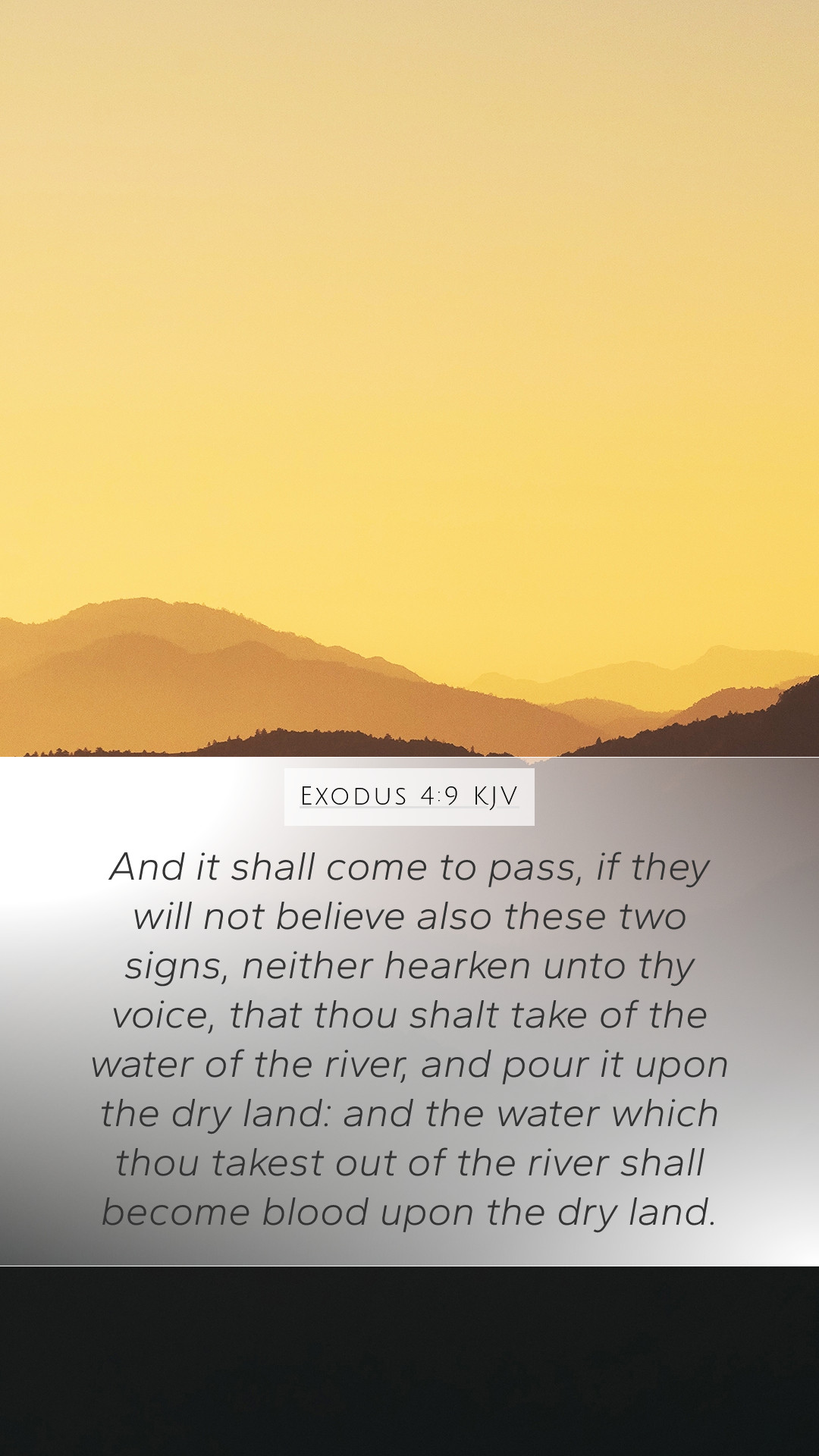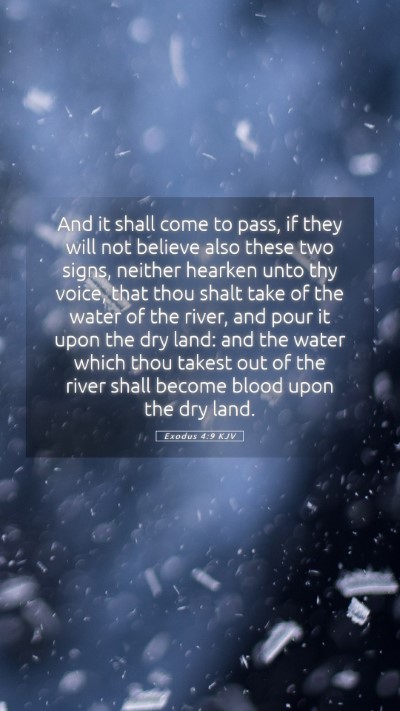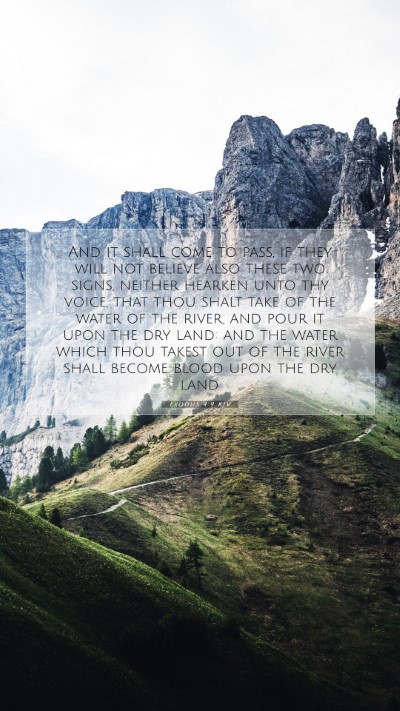Meaning and Interpretation of Exodus 4:9
In this analysis, we explore Exodus 4:9, which reads: "And it shall come to pass, if they will not believe also these two signs, neither hearken unto thy voice, that thou shalt take of the water of the river, and pour it upon the dry land: and the water which thou takest out of the river shall become blood upon the dry land."
Overview and Context
This verse occurs during the conversation between God and Moses at the burning bush, where God is preparing Moses for his mission to lead the Israelites out of slavery in Egypt. Moses expresses concerns about his ability to convince the people and the Pharaoh of his authority.
Key Themes and Insights
- Divine Signs: The signs given to Moses serve as powerful evidence of God’s presence and authority. They illustrate the theme of divine authentication, showing that God equips and empowers those He calls.
- Human Doubt: God's response acknowledges Moses’ fears and doubts. This highlights a common theme in Scripture, where human frailty meets divine purpose.
- Judgment: The transformation of water into blood serves as a foreboding sign of judgment against Egypt, a demonstration of God's sovereignty over creation and His power to enact His will.
Commentary Insights
Matthew Henry's Commentary
Matthew Henry emphasizes the significance of faith in God's power. He discusses how the water turning to blood represents not just a miracle but serves as a warning to those who resist God’s command. It suggests that disobedience to God leads to dire consequences.
Albert Barnes' Notes
Barnes points out that the use of water from the Nile symbolizes the very lifeblood of Egypt. Its transformation into blood serves as a pivotal moment, showcasing God's ability to strip away the comforts of the Egyptians, thereby pushing them towards acknowledging His authority. He highlights the importance of witnessing God's signs to foster belief.
Adam Clarke's Commentary
Clarke expands on the significance of symbols in the Biblical narrative, suggesting that the water turned to blood foreshadows the plagues that will later befall the Egyptians. He explains that this sign not only aims to convince the Israelites but is also a crucial moment for Pharaoh, serving as a dire warning of the impending judgment if he does not heed God's command.
Application for Modern Readers
Understanding Exodus 4:9 can serve as a powerful reminder in the life of believers today. It encourages faith in God’s plan, despite personal doubts. Additionally, it highlights the reality of divine judgment and the need for obedience and faithfulness in one’s spiritual journey.
Cross References
- Exodus 7:17: "Thus saith the Lord, In this thou shalt know that I am the Lord: behold, I will smite with the rod that is in mine hand upon the waters which are in the river, and they shall be turned to blood."
- Exodus 3:11: "And Moses said unto God, Who am I, that I should go unto Pharaoh, and that I should bring forth the children of Israel out of Egypt?"
- Isaiah 20:3: "And the Lord said, Like as my servant Isaiah hath walked naked and barefoot three years for a sign and wonder upon Egypt and upon Ethiopia."
Conclusion
Exodus 4:9 serves as a crucial element in the narrative of Israel's liberation, highlighting the themes of divine authority, the significance of belief, and the reality of judgment. Through various commentaries, we see how this verse offers critical bible study insights and interpretations that deepen our understanding of scripture.


